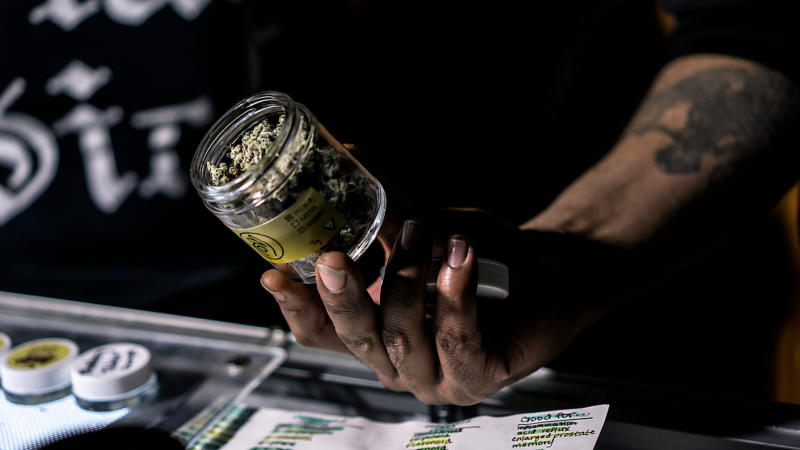A cannabis entrepreneur has shared how a tragic event from the past led him to lead a thriving company.
Keshawn Warner is behind Dazed, a cannabis dispensary based in New York and Massachusetts. However, before becoming one of its co-founders, in 2008, the New York City native was subjected to the war on drugs as he was arrested for attempting to buy cannabis during a sting operation, per Business Insider. The arrest resulted in Warner being unable to secure a job despite being a Norfolk State University graduate with a degree in computer science.
“From then on, whenever I tried to apply for jobs, I was denied, even though I was qualified,” Warner said, according to the outlet. “They never told me why, but you know what you’re being disqualified for — because of your record that comes up in a background search.”
While the opposition was heavy, it didn’t keep Warner down. He recounted officially venturing into the cannabis industry after being a longtime user and selling it every so often.
After being inspired by a dispensary in Denver around 2017, Warner opened Dazed in Massachusetts — one of the first states to legalize weed on the East Coast — with his business partners Rich Rainone and Chris Vianello in 2021.
By August 2022, Warner was approved for a cannabis license in New York as a former drug offender — making him one of the first four people to be granted a license in Manhattan.
According to Warner, Dazed’s New York location generated around $1.2 million in its first year and looking to gross $5 million in 2024.
“Being a Manhattan boy and going through the highs and the lows, and now being able to be the first in the industry like this, it felt like being chosen for the Yankees,” Warner said. “It’s a lemons to lemonade kind of story: I’d been exposed to cannabis from a young age, including from my father, who’d smoked weed for forever. Hip-hop was the culture I grew up around, and cannabis is also infused in that.”
He continued, “I remember all the times my mom was on my case, like, ‘Why are you smoking weed? Is that why you failed math class?’ And now, seeing it become a viable industry, it’s a crazy thing.”


